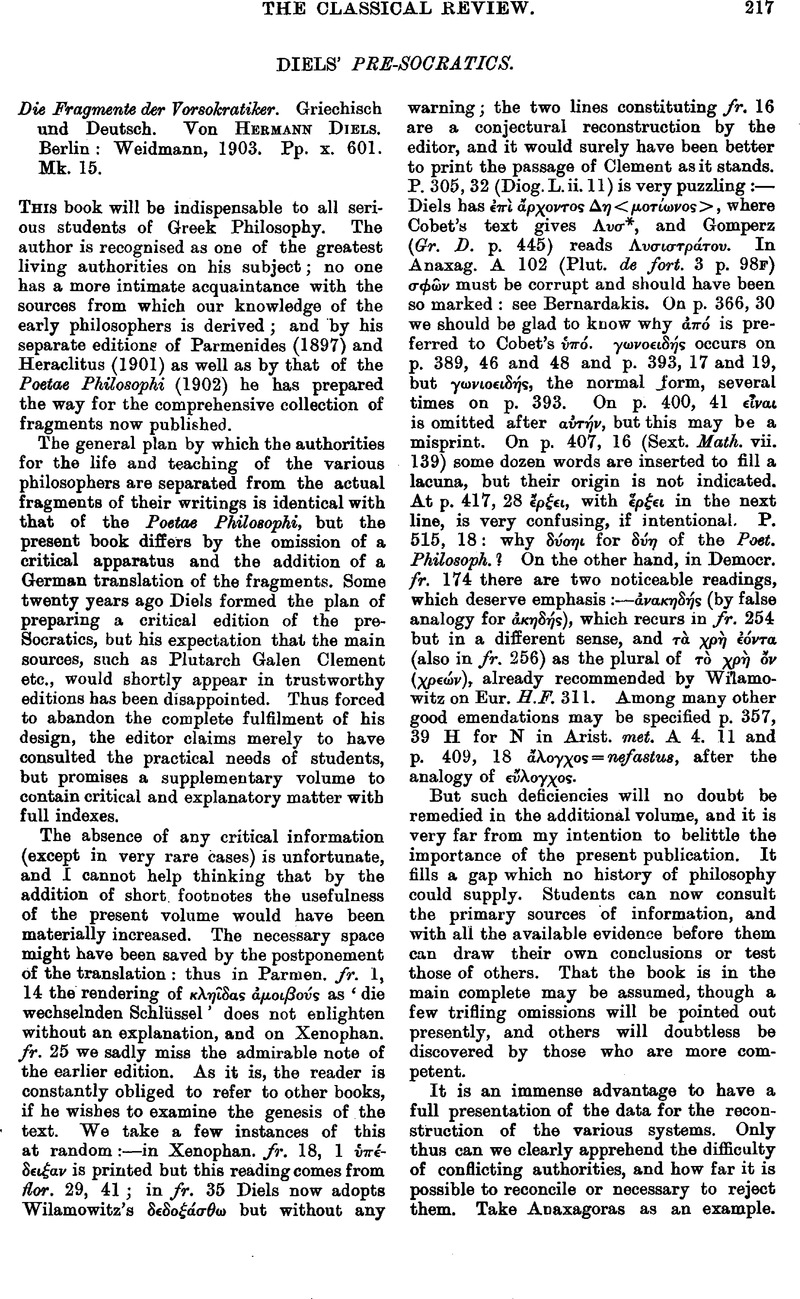No CrossRef data available.
Published online by Cambridge University Press: 27 October 2009

page 218 note 1 This question is raised by A 41 and 43 Diels. Zeller (pre-Socratics, ii. p. 332 foll. E. tr.) does not give any satisfactory explanation. I have not space to mention, much less to discuss, the various solutions which have been attempted.
page 218 note 2 The words in fr. 1 indicating the predominance of ⋯⋯ρ and αἰθ⋯ρ in the original μῖξις are to be explained by the preponderating influence of their σπ⋯ρματα on ![]() fr. 12). I cannot see how this warrants Tannery's view, especially when taken in connexion with fr. 2.
fr. 12). I cannot see how this warrants Tannery's view, especially when taken in connexion with fr. 2.
page 218 note 3 Diels translates the clause, which he prints ![]() , by the words: ‘denn es ist unmöglich, dass das Seiende zu sein aufhöre.’ But the articular infinitive is very harsh and goes even beyond the Sophoclean extension in O.C. 442 etc. Zeller's τομῇ for τ⋯ μ⋯ would be attractive but for the consideration that the following οὐκ should then be μ⋯.
, by the words: ‘denn es ist unmöglich, dass das Seiende zu sein aufhöre.’ But the articular infinitive is very harsh and goes even beyond the Sophoclean extension in O.C. 442 etc. Zeller's τομῇ for τ⋯ μ⋯ would be attractive but for the consideration that the following οὐκ should then be μ⋯.
page 218 note 4 Bonitz made an unsuccessful attempt to explain away this passage, and others have treated the words ![]() as a gloss. Even if such methods were needed, they would be quite unavailing in view of the evidence of Theophrastus and Lucretius.
as a gloss. Even if such methods were needed, they would be quite unavailing in view of the evidence of Theophrastus and Lucretius.
page 219 note 1 Early Greek Philosophy, p. 289, n.
page 219 note 2 It will be convenient to quote the page and line of the present edition in most cases. I ought to add that in speaking of omissions it is not easy to be quite sure in the absence of an index.